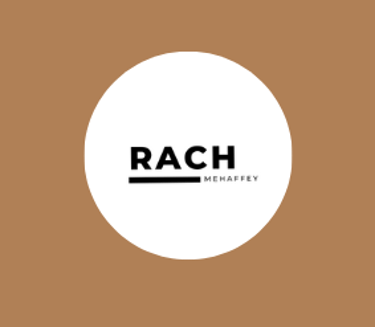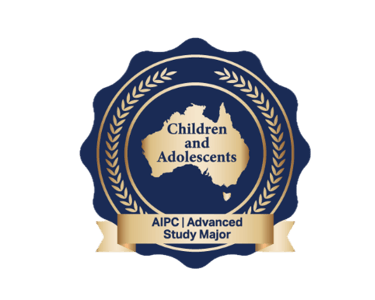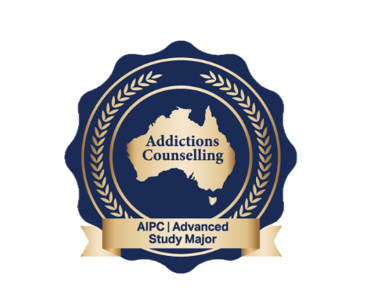Understanding Your Patterns: How to Tell Habits from Addiction
COUNSELLINGLIFESTYLE
Written by Rachel Mehaffey
Difference Between Habit and Addiction: Therapy & Stages of Healing
Many people use the words habit and addiction interchangeably, but the truth is, they describe very different experiences. While habits are patterns of behaviour that can be useful, annoying, or even harmful, they usually remain under a person’s control. Addiction, on the other hand, takes that sense of control away and often requires structured support and professional therapy to overcome.
As a counsellor, I often see confusion around these terms. Understanding the difference matters because it shapes the way people approach change and healing. Habits can often be reshaped with self-awareness and consistent practice, but addiction tends to involve deeper emotional, psychological, and physiological layers that need compassionate and informed care.
Recognising where a behaviour sits on that spectrum—whether it’s simply a habit or something more—is the first step toward meaningful recovery. From there, therapy and the stages of healing provide a framework that helps individuals not only break free from addiction but also rebuild a healthier, more fulfilling life.
Understanding Habits
Habits are part of being human. They are patterns of behaviour created through repetition, often without conscious thought. Some are positive and life-enhancing, like exercising regularly or drinking enough water. Others can be unhelpful, such as nail-biting or mindless scrolling on a phone late at night.
The key point about habits is that they remain flexible. With awareness and persistence, most habits can be changed. The brain is capable of learning new patterns, and even if change takes effort, it’s usually within reach.
What Sets Addiction Apart
Addiction operates differently. It is not just a matter of routine; it involves the brain’s reward system becoming rewired to prioritize a substance or behavior above all else. What begins as a choice becomes a compulsion, and the person affected may feel powerless to stop, even in the face of serious consequences.
Unlike habits, addictions often bring physical, psychological, and social harm. They may damage relationships, impact mental health, and affect one’s ability to function in daily life. This is why professional support becomes so important—breaking free from addiction isn’t simply about willpower; it’s about healing at multiple levels.
Nature, Nurture, and the Roots of Addiction
One of the most important insights in recent research is that addiction doesn’t come from a single source. It’s not just about personality, nor is it simply about environment. It’s a complex interplay of both nature and nurture.
Nature: Studies show that genetics can influence how vulnerable a person is to addiction. For example, individuals with a family history of substance use disorders may have a higher risk because of how their brains respond to reward and pleasure.
Nurture: Environment plays an equally powerful role. Stress, trauma, early exposure to substance use, and lack of social support can all contribute to addiction taking root.
The truth lies in the intersection. A person may have a genetic predisposition, but whether or not addiction develops often depends on life circumstances, experiences, and coping mechanisms. This is why therapy is so vital: it helps people understand their own unique story and work through the layers of biology, psychology, and environment that shape their experience.
The Role of Addiction Therapy
Therapy provides a safe space to explore what lies beneath addictive behavior. Addiction rarely develops in isolation; it is often tied to stress, trauma, or underlying emotional struggles. Therapy works to uncover these layers and provide healthier ways of coping.
Some of the key benefits of addiction therapy include:
Clarity and understanding. Exploring the roots of addiction and what triggers it.
Skill building. Learning coping mechanisms that support long-term recovery.
Emotional healing. Processing past experiences that may be linked to addictive behavior.
Support systems. Creating a network of encouragement and accountability, whether through one-to-one sessions, group therapy, or family involvement.
Relapse prevention. Equipping individuals with strategies to handle setbacks and stay on track.
Cognitive Behavioral Therapy (CBT): The Cornerstone of Addiction Treatment
Among the many therapeutic approaches available, Cognitive Behavioral Therapy (CBT) is the most widely used and extensively researched technique for treating addiction. The core idea behind CBT is that our thoughts, feelings, and behaviors are deeply connected. By identifying unhelpful thought patterns and replacing them with healthier ones, individuals can change the behaviors that feed addiction.
For example, a person might believe, “I can’t handle stress without drinking.” In CBT, this belief is gently challenged and restructured. Over time, the individual learns to replace drinking with healthier coping strategies like exercise, relaxation techniques, or seeking support.
Why CBT is so effective in addiction therapy:
It provides practical, hands-on strategies rather than abstract concepts.
It helps people recognize and manage triggers before they lead to relapse.
It strengthens self-awareness, allowing individuals to see the link between thoughts, emotions, and actions.
It builds confidence by teaching people they can, in fact, choose differently.
CBT is often combined with other therapies, such as motivational interviewing (which helps build readiness for change) or group therapy (which provides community and accountability). Together, these approaches create a supportive, structured environment for recovery.
Stages of Healing in Addiction Recovery
Healing from addiction is not linear. It often involves progress, setbacks, and growth woven together. What helps many people is understanding the stages of recovery, so the journey feels less overwhelming and more like a step-by-step process of healing.
1. Awareness
Healing begins with recognizing that something is wrong. Awareness can come in many forms: noticing health problems, acknowledging the strain on relationships, or simply feeling life is unmanageable.
2. Acceptance
Awareness deepens into acceptance when a person acknowledges the reality of addiction and its impact. This stage involves honesty and courage. It is the point where denial gives way to truth, and the willingness to seek help begins to grow.
3. Detox and Early Recovery
For substance-based addictions, detox may be necessary to clear the body physically. This stage can be difficult and often requires professional supervision. It also involves breaking the routines that supported addictive behavior, which can be unsettling but vital for change.
4. Therapy and Emotional Healing
Once immediate physical dependence is addressed, the focus turns to emotional and psychological healing. Therapy supports individuals in exploring root causes, working through pain, and developing healthier coping strategies. This stage is about building inner resilience.
5. Rebuilding Life
Addiction often leaves gaps—in relationships, careers, or personal goals. Rebuilding life means creating new routines, repairing connections, and discovering purpose beyond addiction. This stage brings hope, though it also requires patience and persistence.
6. Maintenance and Long-Term Growth
Recovery is not a finish line; it is an ongoing process. Long-term healing involves staying mindful, continuing to use coping skills, and remaining connected to supportive networks. Growth continues as people set new goals and live more fully in alignment with their values.
Moving Forward with Hope
The difference between a habit and an addiction is more than semantics—it’s about recognizing the depth of what someone is experiencing and choosing the right path forward. Habits can usually be reshaped with awareness and persistence, but addiction requires deeper healing and often professional support.
Both nature and nurture contribute to the development of addiction, but neither seals a person’s fate. With therapy—particularly evidence-based approaches like CBT—and with consistent support, people can move from struggle to strength.
Healing doesn’t mean erasing the past. It means learning from it, building resilience, and creating a new way of living that feels more whole and authentic. Addiction recovery may be a long road, but it is also one filled with profound possibility. Every step taken is a step toward freedom, clarity, and hope.
Rach xx


I'm Rachel
A certified counsellor and life coach!
As a counsellor & reformer Pilates instructor, I work daily with women on their minds and bodies. I know from personal experience we are not alone in our struggles. There are common grounds, shared experiences, and definitely a way to move forward.
Enjoy the blog; I've designed it to be relatable.


Let's Connect
Instagram let's me inspire daily while LinkedIn helps me teach!
Just a single Mumma from Adelaide who cares how you live your life.
Let's connect & inspire each other.








